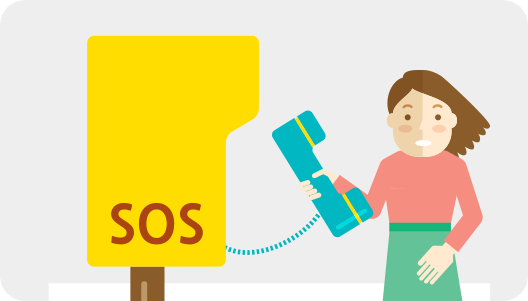- 뒤로가기 Coping by Disaster Phases

3 to 7 days after disaster
- Ask for professional help.
- Take a deep breath to reduce anxiety.
- Try to do daily activities.
1 to 3 months after disaster
- Accept yourself struggling.
- Disaster stress is normal responses; remember that ‘I will cope well in the future’.
- Do not depend on alcohol or drugs.
- Postpone important decisions or major changes in your life.
- Do not forcibly stop thinking about what happened.
- Share your concerns or feeling with your friends or family members.
- Maintain a daily routine.
- Do not excessively avoid certain activities or places.
- Taking enough rest when you feel tired.
- Exercise regularly.
- Let your friends and family know what you need.
- Do some relaxing activities.
- Express your feelings right away.
3 months after disaster
If one of the following 8 symptoms persist for more than 3 months, seek professional help (mental health specialist, mental health social worker, psychologist, etc.)
- Painful feeling and uncontrollable physical sensation (chest tightness, numbness of limbs, dizziness, etc.)
- Feeling numb or empty
- Persistent severe depression
- Persistent anxious and irritable physical symptoms (rapid breathing, heart palpitations, nervous, cold sweats, headache, indigestion, etc.)
- Continuing sleep disorder or nightmares.
- Absence of someone who supports or empathizes with.
- Ongoing relationship problems with friends, family, and colleagues.
- Increased alcohol, tobacco, or drug use.